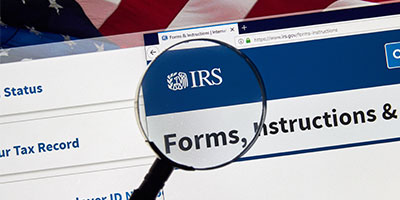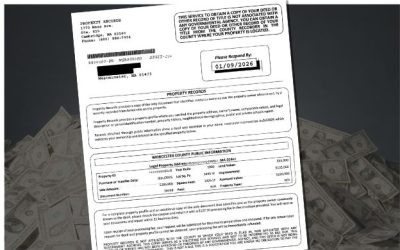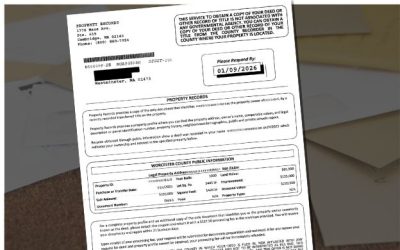SUMMARY: Starting March 1, 2026, FinCEN’s Residential Real Estate Rule requires a Real Estate Report for certain non-financed residential transfers where the buyer is an entity or trust (common “cash/opaque ownership” scenarios). Real estate agents do not file the...

Federal Eyes on Real Estate: A 4-Part Insider’s Guide for Buyers and Sellers
Federal Eyes on Real Estate:
A 4-Part Insider’s Guide for Buyers and SellersWe are pulling back the curtain on how — and why — federal agencies like FinCEN, the FBI, Homeland Security, IRS-Criminal Investigations (IRS-CI), and CFIUS monitor real estate transactions in the U.S.
Whether you’re buying with cash, investing from abroad, transferring property to a family member, or just trying to close without a headache, you’ll want to know what can trigger federal scrutiny — and how to stay off the radar.
From flagged wire transfers and shell companies to gift-of-equity sales and land near military zones, this isn’t your average title-and-keys situation.
It’s real estate with a side of national security, tax enforcement, and financial crime prevention.
4-Part Series
PART 1
Is Big Brother Watching Your Home Sale?
What Buyers and Sellers Should Know About Federal Oversight
You’re Not Paranoid — They Might Actually Be Watching
What you didn’t know on how federal agencies keep tabs on select real estate transactions.
PART 3
Caught in the Crosshairs? What Triggers Federal Interest in Your Home Sale
The Top Red Flags That Could Invite a Closer Look from Washington
Cash, LLCs, or Land Near a Base? You Might Just Be a Target
The warning signs that put your deal on the government’s radar — and how to stay clear.
PART 4
Follow the Money: How the IRS Tracks Financial Crimes Through Real Estate
From Unreported Income to Shell Game Schemes
— What IRS-CI Is Looking For
Your Closing Could Be an Audit Trigger — Here’s How the IRS Sees It
Explore the patterns, documents, and loopholes that turn ordinary deals into criminal cases.
Providing title, escrow, closing and settlement services to clients throughout Massachusetts and New Hampshire
From Our Clients
“As a realtor, the Rocheford team went above and beyond to make sure my client was not only protected from a legal standpoint but also operated in a timely manner to execute the sale of my client’s dream home.
Thank you for the great experience for myself and my client! Looking forward to our next deal together!”
“I don’t usually use attorneys that often. But if an attorney is needed, I couldn’t recommend this law office enough. I always pride myself on responding quickly to emails and calls, but I was in awe of how fast paralegal Robert Heckman would respond to us. We sold our house a couple months ago and then did a two-part land swap with neighbors and my folks, and both transactions were seamless, including coming in to sign paperwork.
In short, if you need a law office that is responsive and attentive to detail, definitely consider them!”
“Excellent, conscientious and professional.
The communication throughout our Real Estate transaction was better than expected. We thought the fee to be very reasonable considering the work accomplished on our behalf. The law office handled the entire closing without us having to be in attendance….as we requested. I have had experience with very competent lawyers and law firms as the result of my previous profession. I would place this law office right up there among the best in their real estate field of expertise and surprisingly at very reasonable and affordable rates/fees.”
Recent News
What Real Estate Agents Need to Know About FinCEN’s New Residential Real Estate Reporting Rule (Effective March 1, 2026)
Why New Homeowners Get Targeted After Closing
For many buyers, one of the most surprising parts of homeownership happens after the closing is complete: the sudden increase in mail related to their property. This isn’t accidental—and it isn’t unique to any one company or offer. It’s the predictable result of how...
New Homeowners Beware: “Recorded Deed” Letters That Aren’t What They Seem
Buying your first home is exciting—and it often comes with a mountain of paperwork. Unfortunately, it can also make you a target for misleading solicitations that appear official and urgent, but offer nothing you actually need.One of the most common examples we see...













 When a homeowner stops making regular mortgage payments, the bank can foreclose on the property. This means that the bank takes possession of the property in an attempt to recover the debt the homeowner owes. In some cases, the bank may try to recover this debt by selling the property at auction. In other cases, the bank will simply list the foreclosed home for sale.
When a homeowner stops making regular mortgage payments, the bank can foreclose on the property. This means that the bank takes possession of the property in an attempt to recover the debt the homeowner owes. In some cases, the bank may try to recover this debt by selling the property at auction. In other cases, the bank will simply list the foreclosed home for sale.